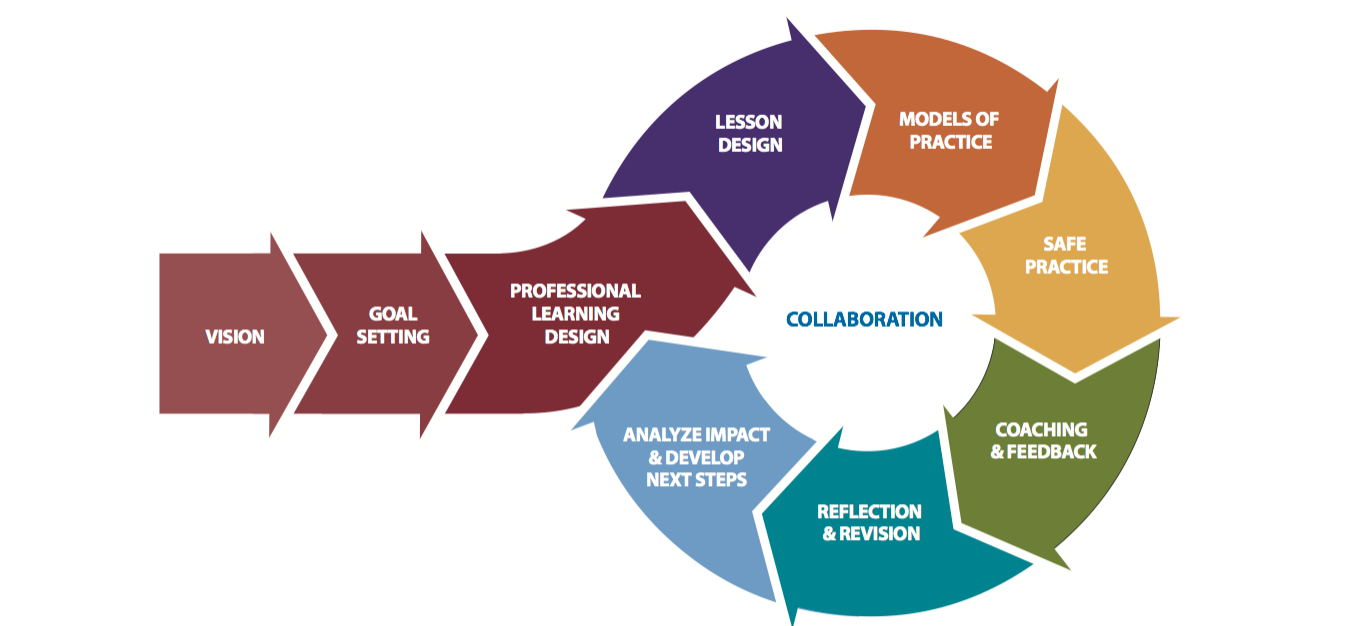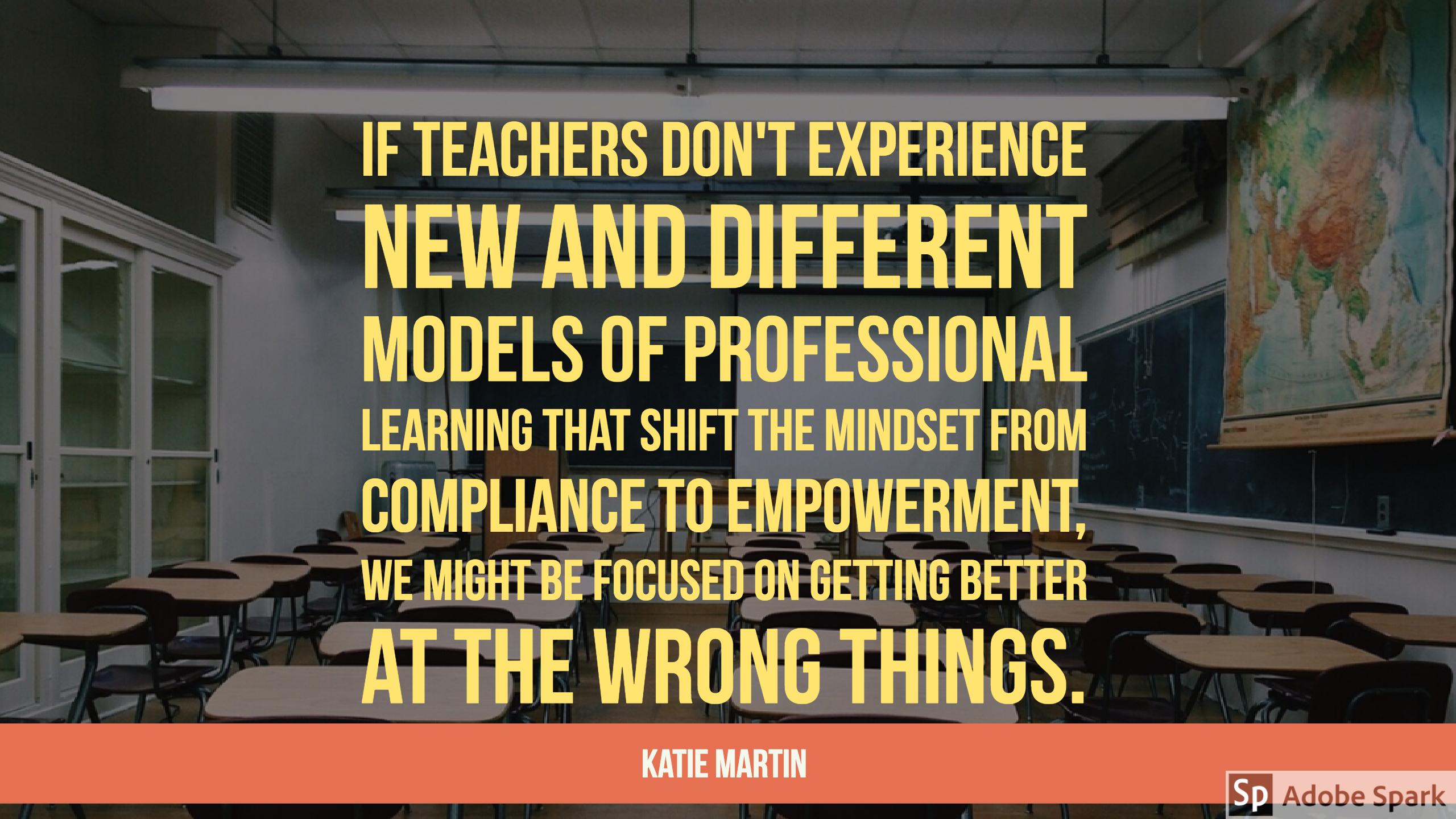Linda Darling Hammond and her colleagues have done extensive research on professional learning and added a tremendous amount to the field of education. I have grounded much of my work in her research, so it is with a great deal of respect and admiration that I push on how some these best practices translate to professional learning in our schools.
This is an excerpt that summarizes the ideal professional learning from the report Professional Learning in the Learning Profession: https://learningforward.org/docs/pdf/nsdcstudy2009.pdf
“Teachers meet on a regular schedule in learning teams organized by grade-level or content-area assignments and share responsibility for their students’ success. Learning teams follow a cycle of continuous improvement that begins with examining student data to determine the areas of greatest student need, pinpointing areas where additional educator learning is necessary, identifying and creating learning experiences to address these adult needs, developing powerful lessons and assessments, applying new strategies in the classroom, refining new learning into more powerful lessons and assessments, reflecting on the impact on student learning, and repeating the cycle with new goals.”
As the research points out, engaging in ongoing, job-embedded professional learning cycles is key to shifting practice. Based on this research, I know many educators who have been expected to spend precious collaboration time going through cycles analyzing data from benchmark tests, focused on making sure that all students have content memorized, or know how to pick the author’s message from 4 multiple choice options, sharing strategies and resources to reteach and improve test scores. These are often compliance based professional learning cycles, where the agenda is externally set and analyzing data and filling out forms can quickly become the focus, not learning. If these cycles of learning are focused on the wrong goals, we can simply go through the motions, collecting data, and revising lessons. The data might even show we get better, but to what end? Do the professional learning experiences align with what we believe is best for learners and help move towards the larger goals or ones that are easy to measure?
If the world is changing, the research and evidence become irrelevant if you don’t consider a new context.
For these professional learning experiences to move educators, classrooms, and world forward, a shift from compliance-based cycles to empowering teachers to drive their learning is critical. Imagine this same cycle, but instead, teachers have opportunities to experience new models of learning and shift their thinking about what is possible in the classroom. Based on new experiences, teachers work together to select goals, research what works in their classrooms with their learners. They determine the best evidence to gather and analyze based on their goals. Teachers collectively provide and receive peer feedback and support to improve based on the shared vision, their goals, and the needs of their learners. This following cycle was created to ensure that the vision and goals for learners remain the driving force for job-embedded cycles of professional learning.

Graphic from MTLC, 2015
To meet the needs of learners in your classrooms and move forward, not just get better at what has always been done, here are 4 questions to assess your professional learning cycles:
- What is the vision for learners?
- How do professional learning experiences model the type of learning you want to see in the classroom?
- How are teachers empowered to drive their own professional learning cycles based on their needs and the needs of the learners in their classrooms?
- How does the evidence you collect and use to guide decisions align with your vision for learners?
If teachers don’t experience new and different models of professional learning that shift the mindset from compliance to empowerment, we might be focused on getting better at the wrong things.



0 Comments
Trackbacks/Pingbacks